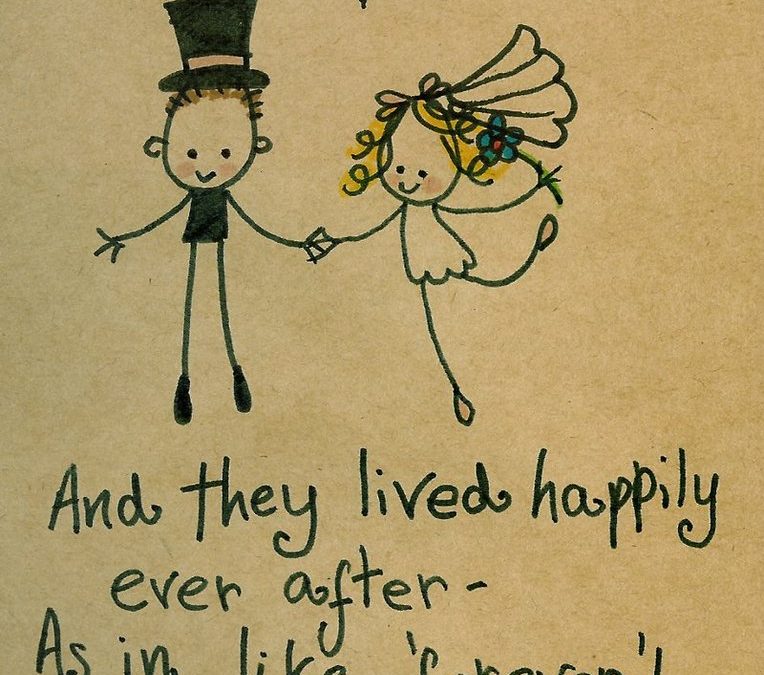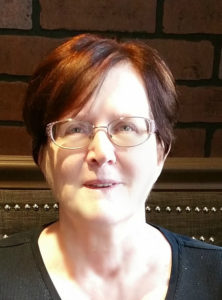As a reader (meaning before I became an author), I always wondered:
- Why authors did not tell us a character’s backstory at the beginning of a book?
- Why only romances had happy endings (mostly)?
- Why authors couldn’t publish books faster (Nora Roberts does it, why can’t everyone else)?
- And
- Why finding well written books was so very difficult (even before ebooks changed the publishing world).
Now, I am an author, and I still don’t have very good answers to most of these questions. However, I have some suggestions.
 In any well written story, authors don’t give character biographies up front for a number of reasons. Frist data dumps about a character are boring. Second, such biographies distract from the unity of the narrative, making the story seem choppy and incoherent. Third, and I believe most important, readers enjoy discovering a character’s background and motives as the story progresses, much like travelers enjoy discovering a place as they move through it.
In any well written story, authors don’t give character biographies up front for a number of reasons. Frist data dumps about a character are boring. Second, such biographies distract from the unity of the narrative, making the story seem choppy and incoherent. Third, and I believe most important, readers enjoy discovering a character’s background and motives as the story progresses, much like travelers enjoy discovering a place as they move through it.
 Romances are not the only books that have happy endings, but happy endings do predominate in romantic fiction. Mysteries and whodunits could be said to have happy endings, since the mystery is solved and the guilty are usually discovered and disabled. SiFi can be said to have happy endings (unless the purpose of the book is to prove that happy is impossible) because the characters usually overcome whatever obstacles are encountered as the story progresses. So Romances do not have a monopoloy on satisfactory endings. And that word, satisfactory, is key. What ever challenges characters encounter in other genres are nearly always resolved satisfactorily by the end of the story. However, the reader’s satisfaction with the ending in genres other than Romance is not always one of happiness. Even within the romance genre, there is dispute about the ‘HEA.’ One very well known author writes novels in which the endings often produce tears of grief and sadness, yet his books are termed romances because there is a love story. While I personally prefer ‘happy’ endings in which a couple appears to have a solid chance of living happily for the rest of their lives. Evidence is too great to deny that other types of endings exist with some frequency in romance fiction.
Romances are not the only books that have happy endings, but happy endings do predominate in romantic fiction. Mysteries and whodunits could be said to have happy endings, since the mystery is solved and the guilty are usually discovered and disabled. SiFi can be said to have happy endings (unless the purpose of the book is to prove that happy is impossible) because the characters usually overcome whatever obstacles are encountered as the story progresses. So Romances do not have a monopoloy on satisfactory endings. And that word, satisfactory, is key. What ever challenges characters encounter in other genres are nearly always resolved satisfactorily by the end of the story. However, the reader’s satisfaction with the ending in genres other than Romance is not always one of happiness. Even within the romance genre, there is dispute about the ‘HEA.’ One very well known author writes novels in which the endings often produce tears of grief and sadness, yet his books are termed romances because there is a love story. While I personally prefer ‘happy’ endings in which a couple appears to have a solid chance of living happily for the rest of their lives. Evidence is too great to deny that other types of endings exist with some frequency in romance fiction.
 Most of us authors agree that Ms. Roberts production rate is phenomenal. I give her credit for learning to write well and quickly over the great number of years she has published romance novels. Very few authors can maintain that pace. Nevertheless, it is not always the author who is the source of delay. Even independently published authors can encounter production problems–that’s all the stuff that happens to a book after it is written and edited. Writing a book is a long and complex process by itself. Publishing a book is a second complex and involved process. Much as I personally would like to release books every three or four weeks it simply isn’t possible. I cannot write and edit that quickly–not with any chance of giving my readers a quality product. Nor can I, as an independently pubished author control the vagaries of Amazon, Smashwords, Draft2Digital and other formatting and vendor sources. Most of the time both processes work fairly well and a professional author can produce quality books on an average of one every three or four months (some are faster, some are not). However, delays happen, and all an author can do when circumstance conspires against her best laid plans is to be honest with her readers. Readers, I hope, will understand.
Most of us authors agree that Ms. Roberts production rate is phenomenal. I give her credit for learning to write well and quickly over the great number of years she has published romance novels. Very few authors can maintain that pace. Nevertheless, it is not always the author who is the source of delay. Even independently published authors can encounter production problems–that’s all the stuff that happens to a book after it is written and edited. Writing a book is a long and complex process by itself. Publishing a book is a second complex and involved process. Much as I personally would like to release books every three or four weeks it simply isn’t possible. I cannot write and edit that quickly–not with any chance of giving my readers a quality product. Nor can I, as an independently pubished author control the vagaries of Amazon, Smashwords, Draft2Digital and other formatting and vendor sources. Most of the time both processes work fairly well and a professional author can produce quality books on an average of one every three or four months (some are faster, some are not). However, delays happen, and all an author can do when circumstance conspires against her best laid plans is to be honest with her readers. Readers, I hope, will understand.
 Finally, why is it so difficult to find well written books? Before ebooks, my process for finding books was to first look for the most recent work of my favorite authors. Authors whom I could count on for an excellent reading experience. If I exhausted that source and still needed to find a good read, I could search reviews in Romance related magazines or ask my bookseller what she would recommend. After the advent of ebooks, I discovered that finding well written books was very much more difficult. My favorite bookstores were closing because their business model was no longer sustainable. My favorite magazines either could not make the transition to an e format or could not find enough reviewers to supply increased demand for reviews as ebook flooded the marketplace. A few review sites cropped up, Goodreads established a method for readers to share word of mouth about good books, Amazon and other book vendors started posting reviews from ‘verified purchasers’. So the means to discover new authors and quality books remained, although it took some time to establish reliable methods. The problem became that no one wanted to give a bad review (heavens, such a reviewer might make the author angry–as if authors had some power to strike down any person who dared criticize a book). Another problem is that the language of reviews was not and could not be uniform. A great read for you might be a mediocre read for me. That has been an issue since time immemorial. In addition, the plethora of on-line review sources made searching through the reviews more time consuming than going to my favorite book store had once been. I still have not resolved the problem for myself. I get recommendations from online friends all the time. Yet all too often they find something to love in a book that I just don’t see.
Finally, why is it so difficult to find well written books? Before ebooks, my process for finding books was to first look for the most recent work of my favorite authors. Authors whom I could count on for an excellent reading experience. If I exhausted that source and still needed to find a good read, I could search reviews in Romance related magazines or ask my bookseller what she would recommend. After the advent of ebooks, I discovered that finding well written books was very much more difficult. My favorite bookstores were closing because their business model was no longer sustainable. My favorite magazines either could not make the transition to an e format or could not find enough reviewers to supply increased demand for reviews as ebook flooded the marketplace. A few review sites cropped up, Goodreads established a method for readers to share word of mouth about good books, Amazon and other book vendors started posting reviews from ‘verified purchasers’. So the means to discover new authors and quality books remained, although it took some time to establish reliable methods. The problem became that no one wanted to give a bad review (heavens, such a reviewer might make the author angry–as if authors had some power to strike down any person who dared criticize a book). Another problem is that the language of reviews was not and could not be uniform. A great read for you might be a mediocre read for me. That has been an issue since time immemorial. In addition, the plethora of on-line review sources made searching through the reviews more time consuming than going to my favorite book store had once been. I still have not resolved the problem for myself. I get recommendations from online friends all the time. Yet all too often they find something to love in a book that I just don’t see.
I would love to see comments that share how you resolve these ‘whys.’ Thank you for reading.


Recent Comments